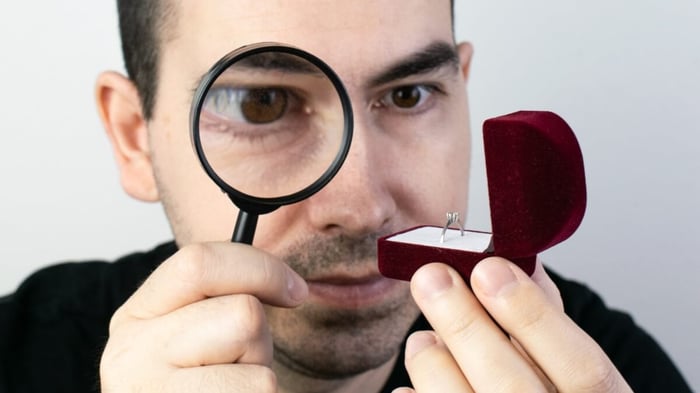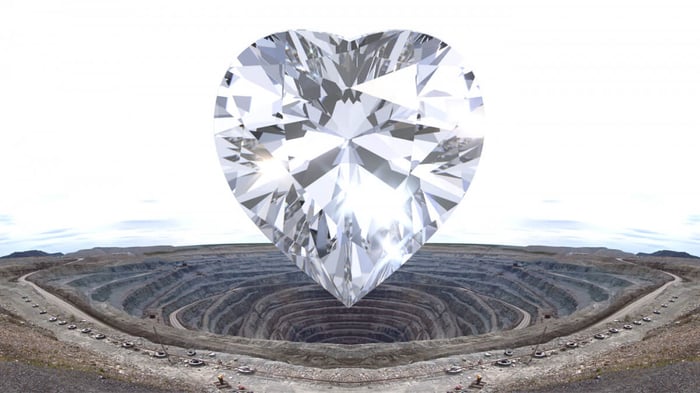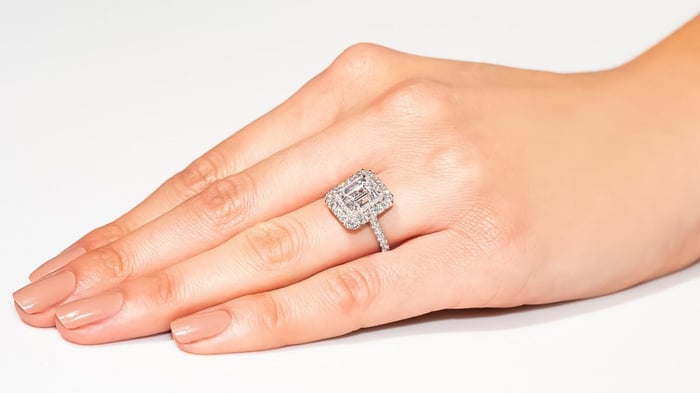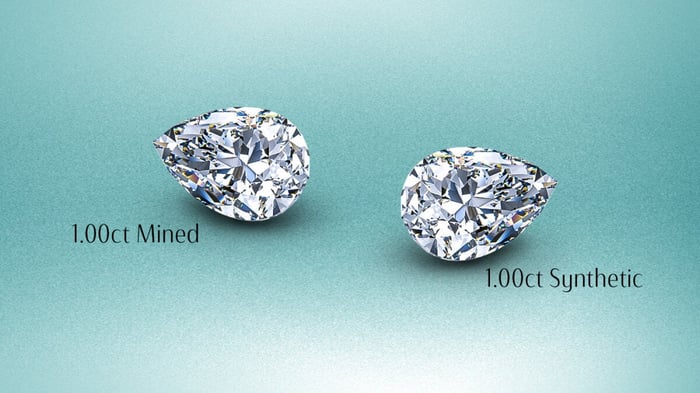How Can You Make Sure That You Are Not Buying Faux Diamond Jewellery?
Before purchasing diamond jewellery, understanding or having basic knowledge of the differences between a fake and a real diamond is crucial. Unless you plan to buy faux diamond jewellery, you never want to get a fake or imitation instead of the real thing!
The easiest way to determine whether or not your diamond jewellery is genuine is to have it assessed by an independent and competent jeweller. This simple step will ensure that you do not make a financial error or make a poor investment.
However, there are a few basic things you can do to assist you in making informed judgments while purchasing diamond jewellery.
1. Your ability to make sound decisions depends on your diamond education level. Learn about how diamonds are graded. Diamonds are graded using an industry-wide system often known as the 4Cs: colour, cut, carat, and clarity. We have articles and training materials that explain how the 4Cs may be used to identify the grade of a diamond.
2. Price is key to ensuring that you get a genuine, natural diamond. As with most things in life, if a thing appears too good to be true, then it probably is!
3. Working with reputed and trustworthy jewellers will help ensure that you do not become a victim of fraud. It might be a reputable online store specialising in diamond jewellery, such as AllDiamond.co.uk, a large national chain, or a small jeweller; the key is that you work with someone with a proven track record in the industry.
4. Inquiring with the retailer is always a good idea. Some jewellers will not provide information until you specifically request it. Inquire about the gemstones you're considering purchasing at the jeweller. For instance, you may inquire whether the diamond jewellery you like is a real natural diamond, a less expensive stone like moissanite, or even an artificial crystal such as cubic zirconia.
5. The most significant hazards of purchasing phoney or counterfeit diamond jewellery are in secondhand and private purchases. Buying secondhand or from a private seller is a primary source of worry. Any reputable jewellery store should ensure that its items are correctly labelled.
6. The diamond's settings will reveal whether or not you are purchasing a natural diamond. Because diamonds are valuable stones, they are expected to be set in a setting that matches their worth. You are unlikely to receive a precious stone if the setting is poorly constructed or composed of inexpensive or low-quality metals.
£387.00
A fun, diverting piece with an engagingly playful pendant necklace in a classic, UK hallmarked, yellow gold with a hand-cut diamond to bring a touch of sparkle. An everyday piece that will also hold its own in the most rarefied… read moreSlanted Heart Pendant 0.05ct Diamond 9K Yellow Gold

£467.00
7. Fake diamonds will sparkle with a rainbow effect depending upon what they are made of. When a genuine diamond sparkles, it emits colours of grey. Those producing rainbow colours, such as cubic zirconia, are most likely knockoffs. Some individuals enjoy the rainbow glint of CZ crystals; they may be magnificent – but never pay "diamond prices" for imitations and fakes!
8. To determine if your diamond is authentic, use the fog test. Put the gemstone in front of your mouth, a couple of centimetres from your lips, and fog it up with your breath to see if it's real or not. If the fog on the diamond clears after one or two seconds, it's probably genuine, but if the stone remains foggy for three seconds or more, it's likely to be a fake. This is because diamonds are god conductors of heat, making fogging impossible. Before doing this test, ensure your diamond is clean and free of oils.
As with all the simple tests described in this article, this is not definite proof. Always use several tests to confirm that your diamond is real or fake.
9. The transparency test is another test that most purchasers would perform. This simple test is worth performing if you're buying loose diamonds.
You place the stone on top of a newspaper and see whether you can see through it. If you can see the newspaper print through the gemstone, you may be dealing with a fake gemstone because diamonds reflect light internally, making it hard to see the text.
10. Diamonds are the toughest natural gemstones known to man. Examine the diamond jewellery for flaws such as scratches, nicks, and chips. Such defects can still be found in authentic diamond jewellery, but too many scratches or faults would raise suspicion.
11. The Water Test. De Beers, the prominent diamond mining and trading company, suggests a simple test for real diamonds. This is a simple way to check that a diamond is genuine. Just fill a clear glass with water and drop the loose diamond into the water. Diamond is very dense, and a genuine diamond will always sink to the bottom of the glass. This is not a definitive test as some simulant diamonds are also dense, so these simulants will also sink. Your checking should not rely upon just one test!
£1,907.00
A gorgeously designed diamond bangle. Brilliantly handcrafted in elegant 18k white gold metal, it features an intricate design on the inner side and has approximately 0.60ct of claw set round brilliant cut and ethically sourced G/SI quality diamonds. The width of… read moreClaw Set Half Diamond Bangle 0.60ct G/SI Diamond in 18k White Gold

£2,577.00
12. Diamond grading certificates are another additional piece of evidence that the diamond is genuine. Ask for a GIA or EGL diamond grading certificate. This certificate would often be included in the purchase of diamond jewellery. We utilise GIA for all of our certifications at All Diamond since they have the finest reputation for consistency and accuracy.
Fake diamonds, on the other hand, aren't necessarily a negative thing! You may buy them at a lower price than natural diamonds, and they can appear to inexperienced eyes to be natural diamonds. The lower cost of faux diamond jewellery makes it easier to replace lost or broken jewellery.
If you're thinking of buying a piece of imitation diamond jewellery as a present, please don't try to trick the receiver into thinking they're wearing natural diamonds. When the receiver realises she received a faux diamond in her ring or necklace, she will be devastated, and your credibility will be shattered!
Natural Diamonds – Always At All Diamond!
At All Diamond, every diamond we sell in our fine diamond jewellery is always a real, natural diamond, created over millions of years, deep within the Earth! Although some faux diamonds can be very pretty, we believe that nothing beats the real thing!
Cubic Zirconia, glass crystals and other simulants have a place in inexpensive costume jewellery, but fine diamond jewellery lasts a lifetime; it becomes a family heirloom, passed through families for generations and inspiring a lifetime of great memories.
Please browse our collections of fine diamond jewellery. All of our jewellery is designed and handcrafted right here in the United Kingdom. We offer a 30 return and exchange service to ensure that you get the perfect piece of jewellery and every purchase has a lifetime workmanship guarantee. Let our designers and artisans inspire you!




